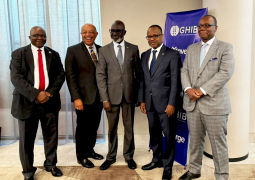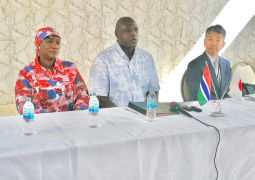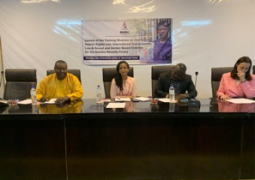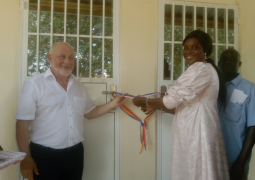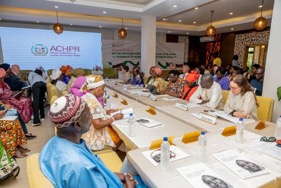
The discussion aimed at addressing several objectives, including the implications of repealing the law that prohibits FGM in The Gambia and the potential broader challenges to women's rights and gender equality.
Honorable Commissioner Janet Ramatoulie Sallah-Njie, special rapporteur on the Rights of Women in Africa (SRRWA) at the African Commission on Human and Peoples' Rights (ACHPR), said the event sought to establish an ad hoc coalition of influential local actors, such as women leaders, religious leaders and traditional leaders to engage in strategic political advocacy.
She added that their aim was to identify strategies for collective action within the next three months and with a long-term perspective.
Fatoumatta Jallow Tambajang said the team dealt with a lot of issues that surrounded Female Genetal Mutilation and its effects and concluded their strategic plans on what next they would do.
“We want to engage all the stakeholders including government institutions and students because everyone needs to be aware of what is happening and have a voice in it. We are also going to adopt both the medium and long term strategies as a way of convincing stakeholders to know that the rights of women and children are part of the laws of The Gambia,” Mrs Jallow Tambajang said.
She stated that after the process, they would also advocate for the enforcement of such laws. “All that it takes to enforce a law is the political will, resources and sensitisation. In The Gambia, some of these kind of laws need to be translated into local languages so that our people can understand them better,” she pointed out.
Imam Bashiru Drammeh of Dippakunda said Islam came to protect the ummah and apparently different stakeholders are taking part in the fight against a law that came into existence to protect women and girls.
“I get hurt when people attribute FGM to Islam. Many people who are speaking about FGM do not know anything about FGM,” he said.


